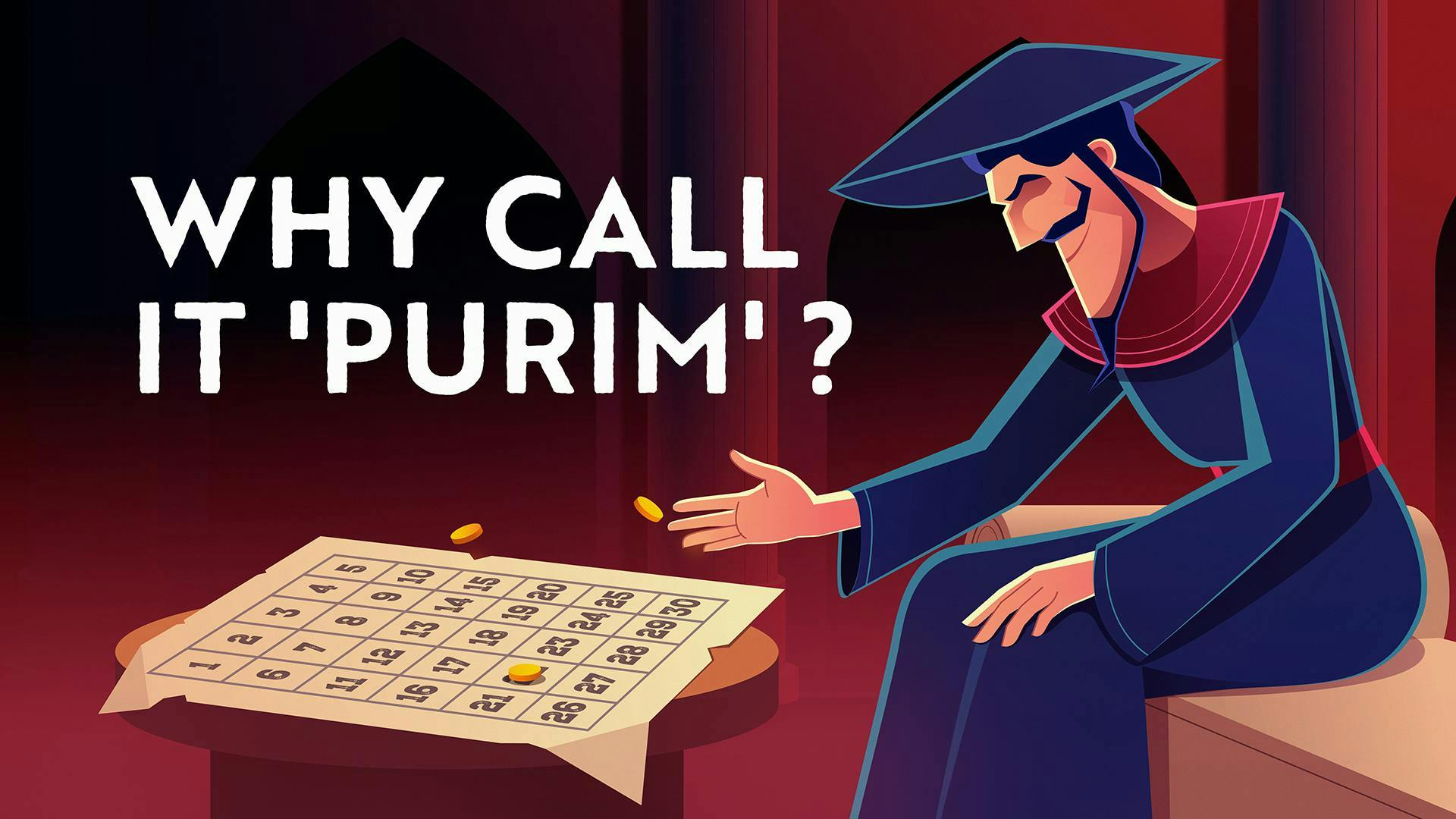Dvar Torah for Purim
The Holiday “Purim” is named for the lots Haman cast to destroy the Jews. But why name a holiday after our enemy?!
By Adina Blaustein | 9 March 2024 | 5 Minute Read

Why is the Holiday Called Purim?
The holiday of Purim is full of joy, and celebration - and don’t forget the candy and costumes. And the name for the holiday reminds us of the cause for all of this joy and celebration: Haman cast lots in ancient Persia, seeking an opportune day to destroy all of the Jews. The Aramaic term for lots is purim, pur is singular, purim plural, and hence we call the day Purim, after Haman's lots.
But let’s just stop and think for a second…does that make any sense? Why would you name the day after the device that your enemy used to try to kill you? To illustrate the absurdity, imagine renaming Yom Ha’atzmaut, Israeli Independence day, “Tokarev Day” - after the Russian-made rifles used by the Arabs in the war. It would be so strange to call the day we celebrate the birth of Israel in 1948 after enemy weapons. Yet that seems to be happening with the holiday of Purim!
Why Would Purim Be Named After Haman's Lots?
Now the truth is, the Megillah itself, in chapter 9, towards the very end, actually tries to explain to us why the holiday is called Purim.
Here’s the explanation given in chapter 9 verses 24-
“For Haman son of Hammedatha the Agagite, the enemy of all the Jews, had plotted to destroy the Jews, and had cast lots with intent to crush and exterminate them. But when [Esther] came before the king, he commanded: “With the pronouncement of this decree, let the evil plot, which he [Haman] devised against the Jews, be reversed on its head!” So they impaled him and his sons on the stake. For that reason, these days were named Purim, after pur. In view, then, of all the instructions in the said letter and of what they had experienced in that matter and what had befallen them…”
At first glance, these verses simply state the literal explanation for the holiday name of Purim, in remembrance of the lots that Haman cast. But when you take a closer look, there are three ideas set forth here that are a bit out of order. Here’s a list of the three ideas shared in the verses explaining the origins of the holiday:
Idea #1 – Haman tried to kill us, and to find the day on which he would kill us he cast lots.
Idea #2 – Esther, thank God, managed to save us.
Idea #3 – And that's why they call the holiday Lots.
At first glance, all seems in order. But when you look at the list a second time, something is actually kind of strange. The information in Idea #2 and Idea #3 feels out of order. Wouldn’t it be much more logical to say "Haman tried to kill us, and he cast lots in order to destroy us – parenthetically – and that's why they call the holiday Lots." And then finally, "And thank God, Esther managed to save us?!”
The verses share Idea #2 - that Esther saved us - right before Idea #3 - that’s why it’s called Purim, or lots. It leads us to the strange conclusion that the reason the holiday is called Purim, or lots, isn’t because of Haman’s lots….but because Esther managed to save us. It’s a pretty bizarre conclusion, I grant you, but just by reading the verses carefully, that’s exactly what seems to be hinted at, because Esther saved us, we have a holiday called Purim. What a confounding conclusion! It seems to be what the ideas presented in the verses are suggesting! But what about the definition of the word Purim? How does the word Purim, Lots, connect to the idea suggested in theses verses that the holiday is named to recall Esther’s action to save the Jews? Is there a different explanation for the name Purim that these verses are suggesting?
What Is the True Meaning of Purim?
Rabbi Fohrman suggests in this series of videos that there is an explanation for the holiday of Purim, Lots, that is being suggested in these verses. He emphasizes that, just as the verses suggest, the primary reason for the name Purim, is not because of Haman’s lots. Instead, Rabbi Fohrman uncovered a different definition of the word Purim, that doesn’t refer to Haman’s lots. Instead, the word Purim is meant for us to recall Esther’s heroism at the most climactic moment in the story. The name for this special holiday of Purim itself isn’t highlighting a random act of a non-believing villain. Rather, it honors the actions of a woman whose deep faith guides her actions.
More Purim Videos
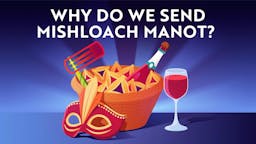
Why do we send Mishloach Manot?
Video series • Part 1 of 2 • 46 min
What does sending food have to do with the Purim story, and why did Mordechai insist we continue this practice forever?
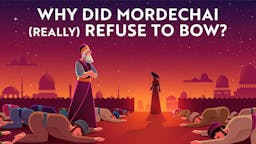
Why Did Mordechai Really Refuse to Bow to Haman?
Video series • Part 1 of 2 • 1 hour, 2 min
Everyone knows Mordecai refused to bow to Haman, but the text of the Megillah is strangely silent about any idol. Discover the fascinating biblical parallel that reveals Mordecai's true motivation—and transforms our understanding of Purim's hero.
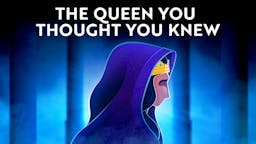
The Queen You Thought You Knew
Video series • Part 1 of 7 • 11 min
Step beyond the children's version of Purim you learned in third grade. Uncover the sophisticated psychological strategies, political maneuvers, and hidden motivations that make the real Megillah a masterpiece of suspense.
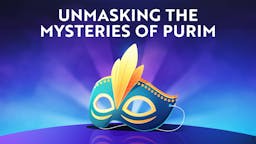
Unmasking The Mysteries Of Purim
Video • 2 hours, 7 min
Rabbi Fohrman explores the connection between the stories of Megillat Esther and Adam and Eve in the garden of Eden. Could the very first story in the Torah have any connection to the very last story of the Torah? And if so...what does that mean for the way we understand the holiday of Purim today?
More Purim Guides
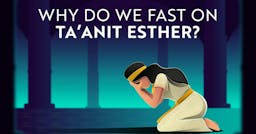
Esther’s Fast (Taanit Esther): Guidelines and Meaning
Article
. Why do we fast on the day before Purim? What is Taanit Esther all about? Here’s everything you need to know.
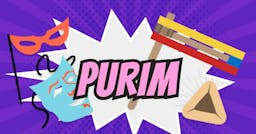
What Is the Meaning of Purim? The Purim Story, Purim Characters & Customs Explained
Article
. Purim is a festive Jewish holiday where we celebrate with costumes, noisemakers, and parties. But what is Purim really about once we strip away the revelry? Here we explain what Purim commemorates, and why it is still relevant in the 21st century.
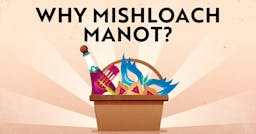
Mishloach Manot
Article
. Purim day is filled with the excitement of giving and receiving Mishloach Manot, small gifts of delicious food. Mishloach Manot come in all shapes and sizes, but, bagged, boxed or in baskets, these special Purim gifts add immensely to the joy and warmth of the holiday. Why do we give Mishloach Manot on Purim? And what goes into a perfect Purim basket? Scroll down to find out.
Purim Pages
What is Aleph Beta?
Aleph Beta is a unique kind of Torah library. Led by our founder, Rabbi David Fohrman, we are dedicated to high-level, textual Torah learning for adults that is intellectually and spiritually sophisticated, that enlivens your Jewish practice and helps you forge a deeper connection to God. Whether you’ve been learning in yeshiva for years or you’re just beginning your Torah journey, you’re sure to find something meaningful and surprising waiting for you here.
Browse our library of over 1,000 beautifully produced animated videos, podcasts, deep dive courses, and printable guides. Topics include the weekly parsha, Jewish holidays & fast days, laws & mitzvot, prayers, relationships, big philosophical ideas and more. Have something to say at the Shabbos table that will amaze your family and guests and bring deep meaning into their lives.

